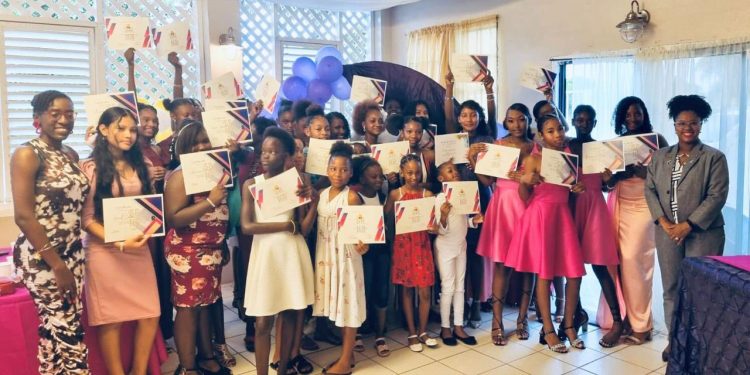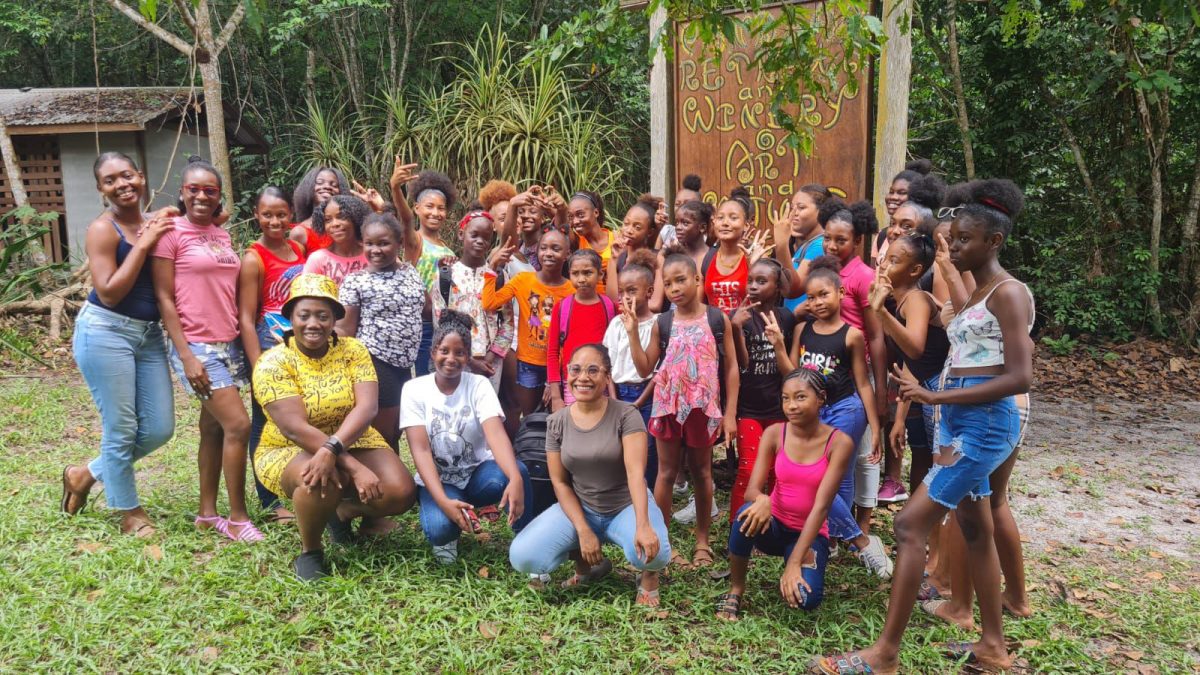A total of 30 Kuru Kururu teen girls benefitted from much needed training when the Sexual and Reproductive Health and Rights (SRHR) Adventures hosted its annual Parushi Club programme over the course of three months.
Through the combined partnership, the girls learned about anatomy, self-confidence, empowerment, safely surfing the web, and menstrual hygiene, among other topics.
In 2019, SRHR Adventures had embarked on the establishment of the Parushi Club programme, which seeks to help transform girls into dynamic young women.

Project Coordinator Yvonne Barrow explained to this publication that in 2019 the programme was launched in Buxton, but this year the group targeted the Kuru Kururu area as was recommended by the Ministry of Health.
According to Barrow, SRHR Adventures is a grassroots organisation that promotes family planning and contraception with a special focus on rights of women and girls. However, the nucleus of the Parushi Club is mentorship, with sub-themes of sexual reproductive health and the rights of women and girls in rural communities.
She said consultation is done with the Ministry of Health to narrow down areas with alarming rates of adolescent pregnancies, after which the group would visit the community to further determine the needs in that area.
The project targets girls between the ages of 10 and 17 years old. “It’s just to educate and support the development of adolescent girls,” Barrow stressed.
The programme was held every Saturday over the course of three months, during which collaborating partners offered training and talks to the participants.
“Parushi Club is a safe space for girls to be amplified, there were talks about building confidence, self-esteem and education about their reproductive rights,” she added.
Additionally, the girls were furnished with information about several other relevant topics including the menstrual cycle, becoming parents, money management, financial literacy, entrepreneurship, business, gender-based violence, safe surfing the internet, network building and relationships. Other topics included female and male anatomy, nutrients for adolescents, going through puberty, what to expect with sex, consent and abstinence.
“When we entered the community, consultation was done to validate that the programme was necessary…,” she stressed. “Parents, teachers and the community were very interested as programmes are not often done in such areas… A space existed for girls only, there was a need for it, and the community expressed an interest.”
Barrow said the girls expressed how happy they were to have such an opportunity, somewhere to go on Saturdays, and to participate in a learning initiative within their community, which was something that was not often accessible to them.
Barrow said the project itself created a sense of awareness and sisterhood among the girls in the community. “It has created access to information. Some of the girls were now entering adulthood and that age of puberty so they were informed what to expect and [how to] manoeuvre their teenage lives. They were able to address a lot of things and raise some of their concerns, and myths and stereotypes learned from their peers,” she stated.
Money was extensively discussed, as well as safely surfing the internet, which is especially important at their ages, she noted.
They had a space to “raise to all their questions and [they] left with a clearer sense, had a greater sense of purpose, [were] confident and more encouraged to participate in activities,” she added.
The Parushi Club is an annual project which was restricted by the Covid–19 virus in 2020. Barrow said they were happy to be able to return this year with their numerous collaborating partners.
Additionally, she said that SRHR created a register to monitor the programme activities and keep connected to participants so that there could also be interventions to strengthen the support of the girls who previously participated.






